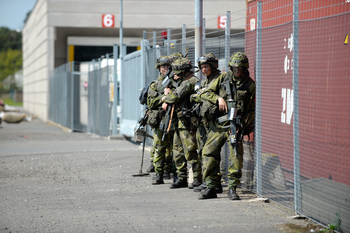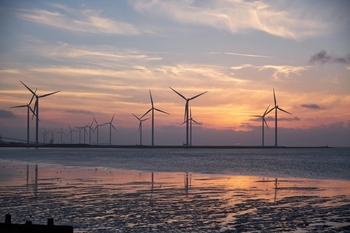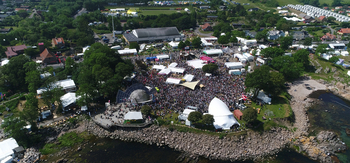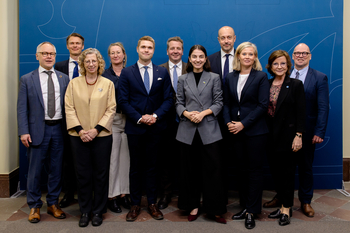Transition to advanced production
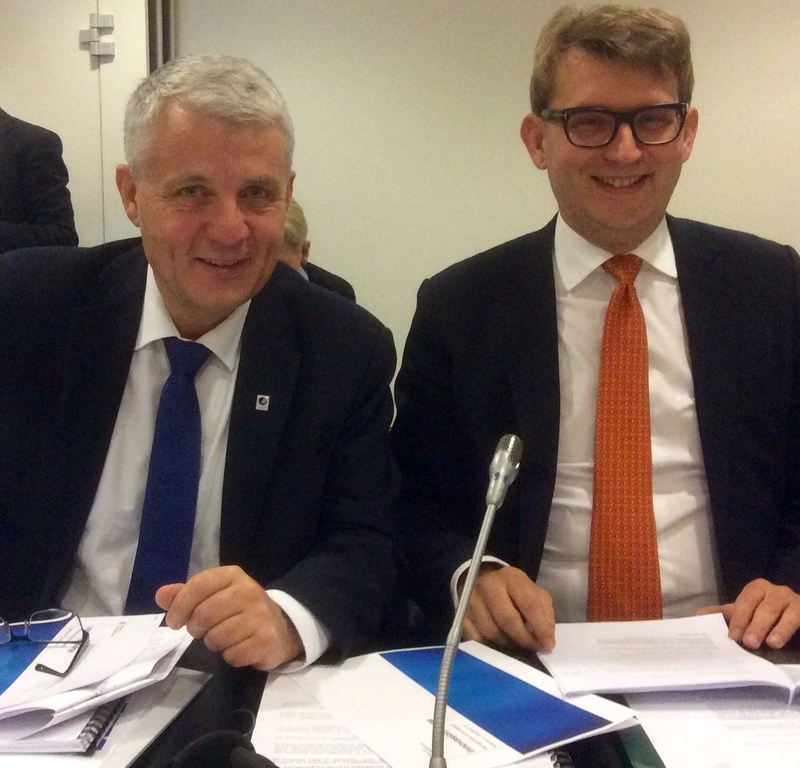
Manufacturing plays a highly significant role in the economies of the Nordic countries but the sector has shed a quarter of its jobs over the last two decades. At a meeting of the Nordic Council of Ministers on 7 December 2015, the business and industry ministers discussed ways of working together, learning from and inspiring each other and coming up with new joint initiatives.
The discussion was instigated by Danish Minister for Business and Growth Troels Lund Poulsen, who chairs the Nordic Council of Ministers for Business, Energy & Regional Policy (MR-NER) 2015.
“In the Nordic countries, manufacturing is of great importance to the development of productivity, innovation, growth, employment and exports, especially outside of the major cities. It is in all of our interests to maintain and expand our manufacturing base.”
Declaration by the Nordic Council of Ministers
“All of the Nordic countries need to promote manufacturing. The Council of Ministers can do this by spreading information about national initiatives as a source of inspiration, and by identifying specific areas in which joint projects would underpin the transition to advanced production, generate growth and create jobs.”
In advance of the meeting, the project “Production in the Nordic Region”, launched by the Danish Presidency of the Council of Ministers, mapped trends in digitisation and automation in Nordic manufacturing and policy initiatives in the Region.
The report is available here: Digitalisation and automation in the Nordic manufacturing sector
“In the Nordic countries, manufacturing is of great importance to the development of productivity, innovation, growth, employment and exports, especially outside of the major cities. It is in all of our interests to maintain and expand our manufacturing base.”FACTS from the report:
Over 50% of Nordic exports consist of manufactured goods, making manufacturing a major contributor to foreign exchange earnings and the balance of payments.
The manufacturing industry is responsible for between 33% (Norway) and 77% (Finland) of private research and development.
Manufacturing generates wealth and is an important source of financing for the Nordic welfare states. On average, Nordic manufacturing productivity increases by 3% p.a. – compared with less than 1% in other sectors.
Manufacturing creates jobs for a wide range of sub-contractors in other sectors, e.g. knowledge services, finance and insurance, transport and construction.
Manufacturing contributes to regional balance – unlike other sectors, much of the job creation takes place outside the university towns, including in rural areas.
The report identifies a number of barriers faced by all of the Nordic countries with regard to digitisation and automation:
Access to qualified staff: Manufacturing companies report a lack of 1) IT specialists, 2) general IT skills; and 3) highly skilled labour (e.g. engineers).
Access to capital: Investments in, e.g. robots and advanced computer systems are expensive. SMEs often find it difficult to obtain financing.
Lack of management resources: Digitisation and new business models require the development of strategies, adaptation and planning. Smaller companies often lack resources for development.
Access to knowledge: Manufacturers often work on small, customised production runs. Automating and digitising this type of work is a highly complex procedure. Companies are dependent on access to advice and on collaboration with students, researchers and other companies.
FACTS about the project
The project “Production in the Nordic Region” is run by the Danish Business Authority and involves public-sector agencies and private organisations in:
- mapping initiatives in digitisation and automation of manufacturing in the Nordic countries, including disseminating results and good practice
- identifying Nordic initiatives that will underpin the transition to advanced manufacturing.
The project is being funded by the Nordic Council of Ministers with a DKK 5.25 million grant for the period 2015–2017.
